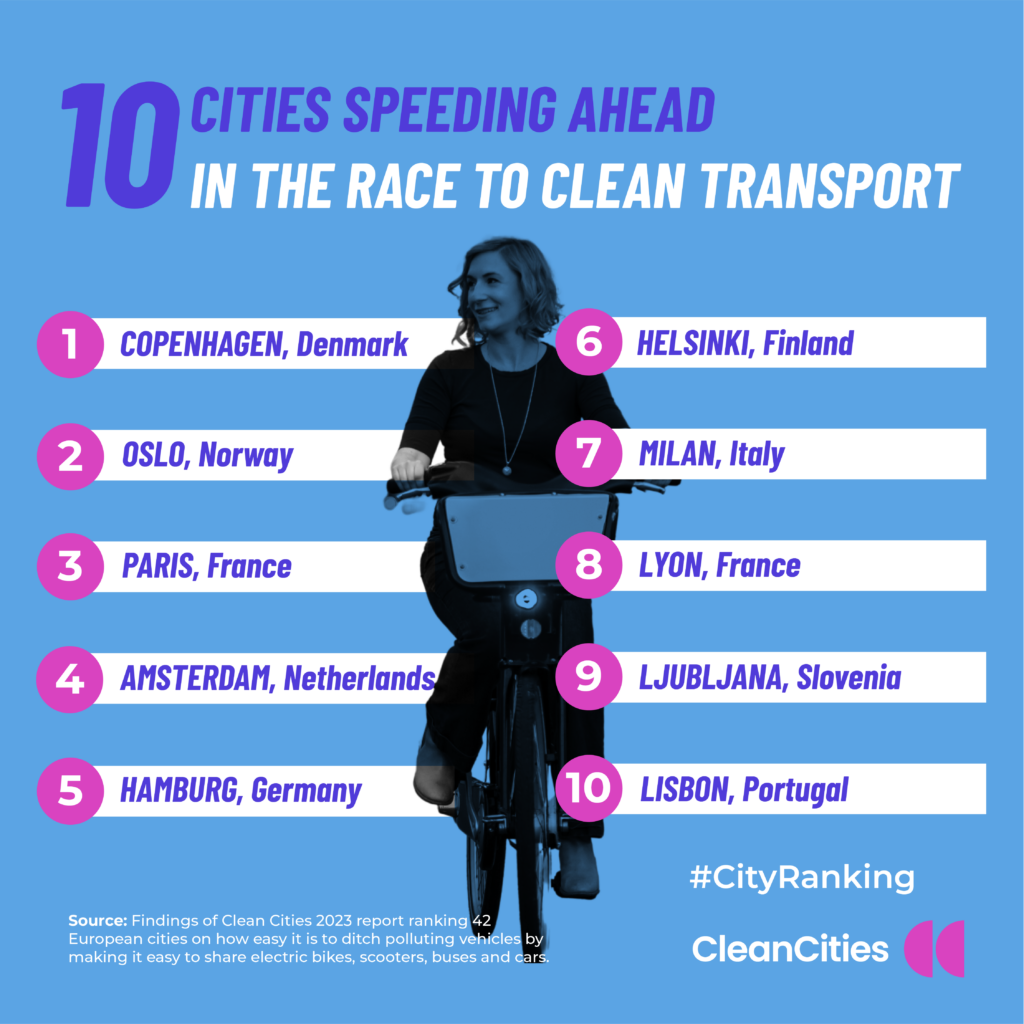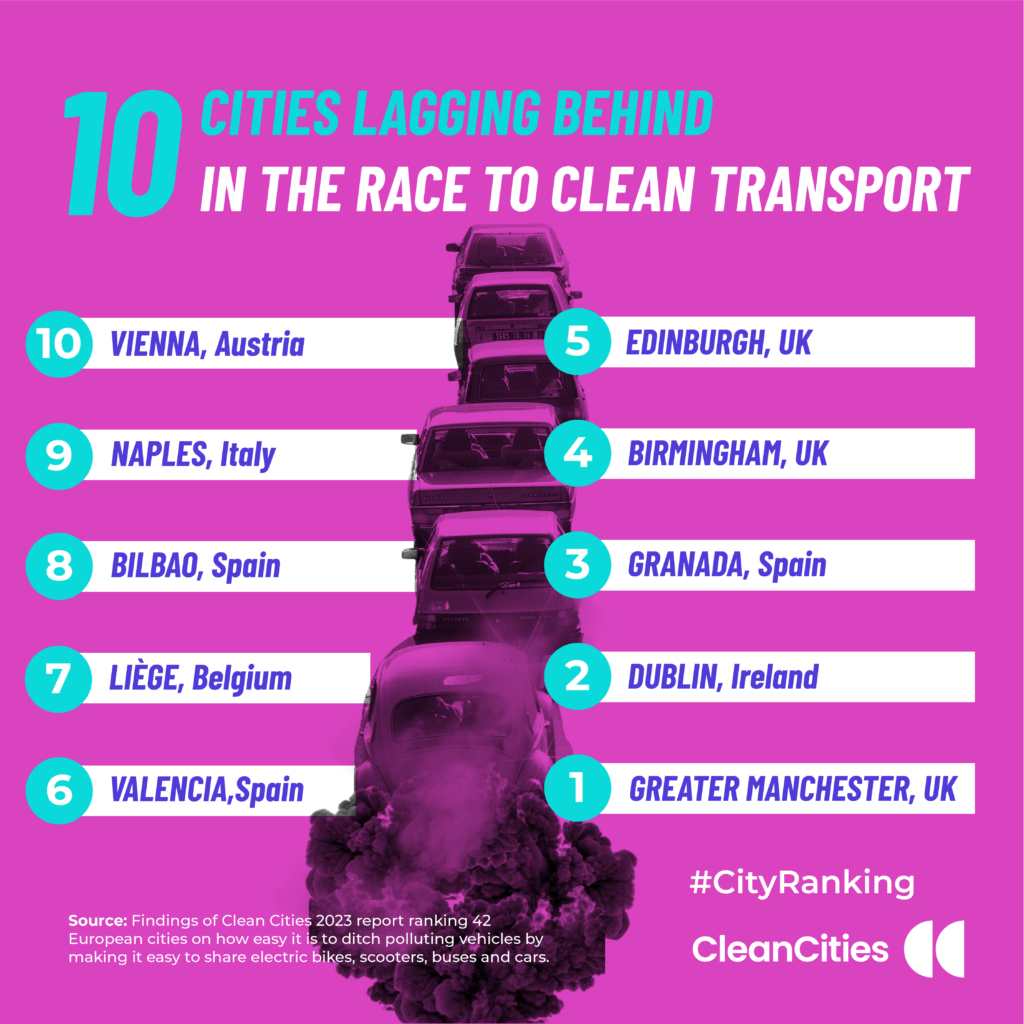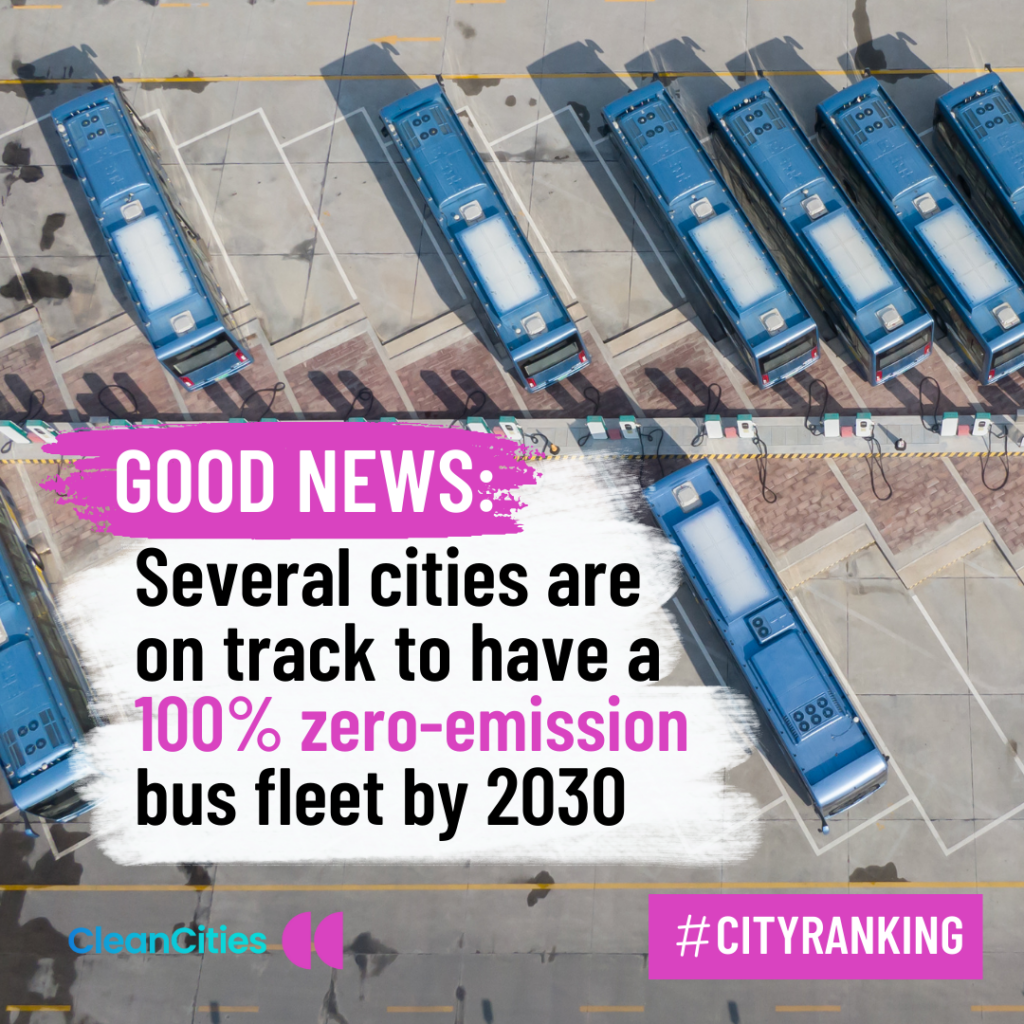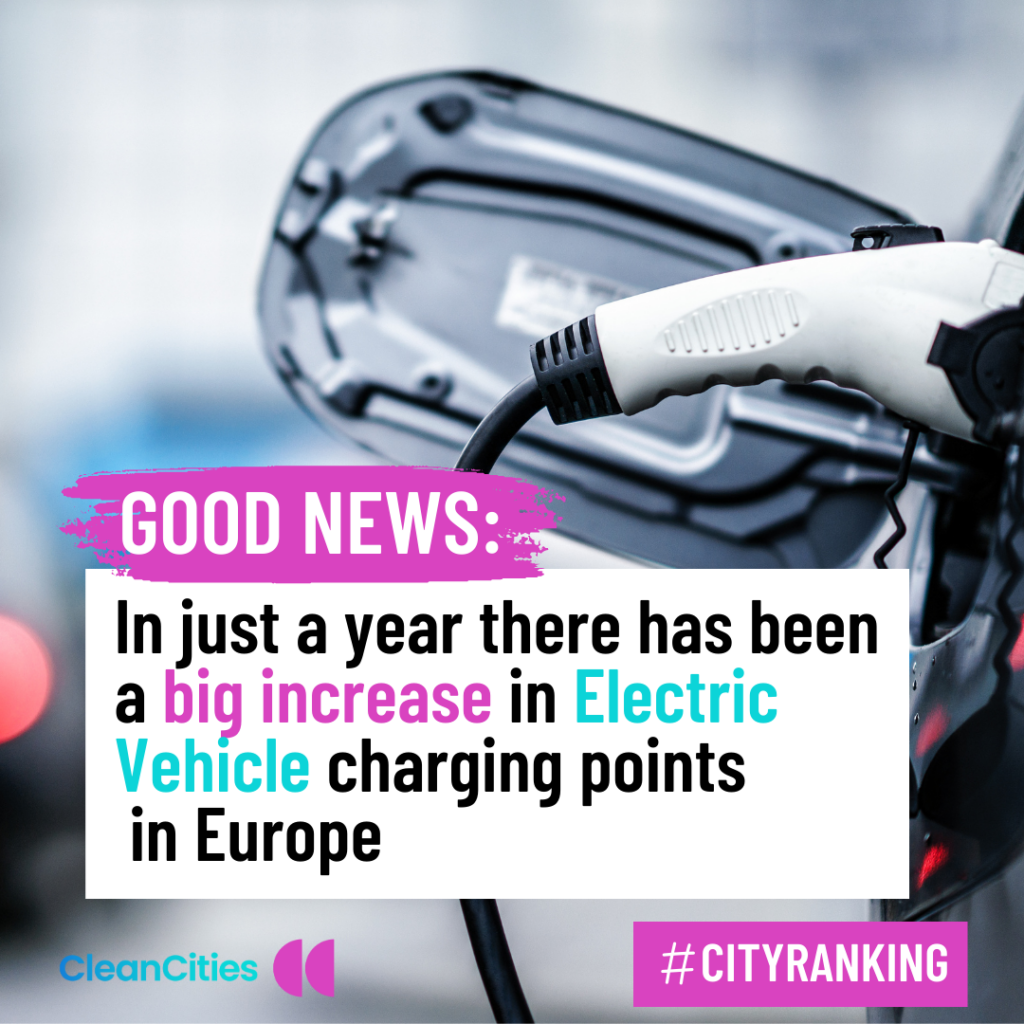city ranking: 2023 FOCUSED edition
THE STATE OF SHARED & ZERO-EMISSION MOBILITY IN EUROPEAN CITIES
In the race to cleaner transport, it’s no secret that we need to phase out polluting cars. To do that, cities must provide residents with clean, affordable transport options. These include shared bikes and scooters, zero-emission buses and shared electric cars and charging infrastructure.
In 2023, we tested 42 European cities to see who's speeding ahead when it comes to shared and electric mobility. Scroll down to find your city and use the "Share" buttons to ask them to do more!
Legend
Shared bikes and e-scooters
Score based on the number of shared e-scooters and (e-)bikes available per 1,000 inhabitants. Data reflects the situation in Q1 2023.
Shared electric cars
Score based on the number of shared electric cars available per 1,000 inhabitants. Data reflects the situation in Q1 2023.
Zero-emission buses
Score based on the share of the city's urban bus fleet that is zero-emission. Data provided by cities and operators ranges from 2021 to 2023.
EV charging infrastructure
Score based on publicly available charging power per 1,000 inhabitants. Data reflects the situation in January 2023.
#
City
Country
Total
Score
Grade
Shared bikes and e-scooters
Shared
electric cars
Zero-emission
buses
EV charging infrastructure
Share with
your mayor
Some expected changes
For the following cities (highlighted in the table with *), major changes have been announced/confirmed but not yet fully implemented. The expected revised overall scores are as follows:
Paris: ▼ 60.8% – Ban on shared e-scooters expected to come into force by September 2023
Madrid: ▲ 35.3% – New BiciMad e-bike scheme with up to 7,500 bikes
Brussels: ▼ 39.5% – Introducing a cap of 8,000 e-scooters in 2024
Barcelona: ▲ 21.8% – Planned addition of up to 2,500 e-bikes in 2023
Tri-City: ▲ 38.5% – 3,000 e-bikes and 1,000 bikes deployed in May/June 2023
Greater Manchester: ▲ 14.5% – Expected delivery of electric buses in 2023 following reinstated local control of buses starting in September 2023
read the full research
Looking for the full results, analysis and research methodology? Download our full briefing on the state of shared and zero-emission mobility and the technical report now!
Help us spread the word
Download the materials below and post them on social media using the #CityRanking hashtag – don’t forget to tag your city leaders!




